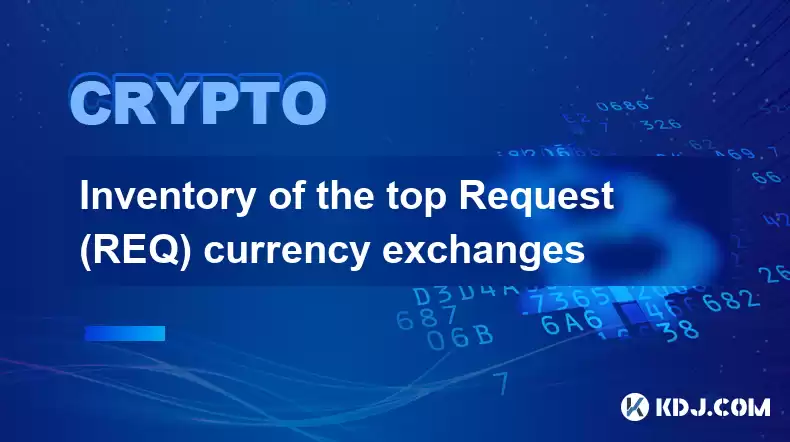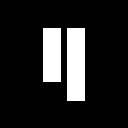-
 Bitcoin
Bitcoin $119900
0.91% -
 Ethereum
Ethereum $4576
8.55% -
 XRP
XRP $3.264
4.05% -
 Tether USDt
Tether USDt $0.9998
-0.05% -
 BNB
BNB $834.7
4.17% -
 Solana
Solana $191.8
9.96% -
 USDC
USDC $0.9998
-0.02% -
 Dogecoin
Dogecoin $0.2363
6.08% -
 TRON
TRON $0.3525
2.56% -
 Cardano
Cardano $0.8419
9.12% -
 Chainlink
Chainlink $23.19
9.97% -
 Hyperliquid
Hyperliquid $44.97
4.53% -
 Stellar
Stellar $0.4489
4.20% -
 Sui
Sui $3.876
6.19% -
 Bitcoin Cash
Bitcoin Cash $618.1
7.14% -
 Hedera
Hedera $0.2617
6.55% -
 Ethena USDe
Ethena USDe $1.000
-0.03% -
 Avalanche
Avalanche $24.61
7.96% -
 Litecoin
Litecoin $131.7
9.52% -
 Toncoin
Toncoin $3.502
3.62% -
 UNUS SED LEO
UNUS SED LEO $9.093
1.32% -
 Shiba Inu
Shiba Inu $0.00001358
5.37% -
 Uniswap
Uniswap $11.50
5.05% -
 Polkadot
Polkadot $4.150
7.77% -
 Dai
Dai $0.9997
-0.05% -
 Cronos
Cronos $0.1650
-0.75% -
 Ethena
Ethena $0.7981
2.06% -
 Pepe
Pepe $0.00001216
8.64% -
 Bitget Token
Bitget Token $4.467
1.74% -
 Aave
Aave $319.2
9.18%
Inventory of the top Request (REQ) currency exchanges
Choosing the optimal REQ trading exchange involves comparing trading volume, fees, security, features, and reputation, considering Binance, Coinbase, Huobi Global, Kraken, and OKX based on these criteria.
Dec 25, 2024 at 06:39 pm

Top Request (REQ) Currency Exchanges
Key Points:
- Comparison of major exchanges offering REQ trading
- Detailed analysis of each exchange's fees, security, features, and reputation
- Recommendations for choosing the best exchange for your needs
- Guide to creating an account and trading REQ
- Frequently Asked Questions (FAQs)
Exchanges Ranked by Trading Volume (Excluding FTX)
- Binance: Consistently high trading volume, low fees, and a comprehensive platform.
- Coinbase: Renowned for its user-friendliness, security, and reputation.
- Huobi Global: Extensive list of supported cryptocurrencies, including REQ.
- Kraken: Advanced trading features, robust security, and a strong reputation.
- OKX: High liquidity, competitive fees, and a wide range of trading options.
Exchange Analysis
Binance
- Low trading fees (0.1%)
- Wide range of supported cryptocurrencies
- Advanced trading features
- High security standards
- Margin trading and futures contracts
- Excellent customer support
Coinbase
- Beginner-friendly interface
- Trusted and regulated platform
- High security measures
- Limited trading options compared to other exchanges
- Higher trading fees (0.5%)
Huobi Global
- Over 900 supported cryptocurrencies
- Competitive trading fees (0.2%)
- Advanced trading features
- Margin trading and lending services
- User-friendly interface
Kraken
- Strong security (two-factor authentication)
- Excellent liquidity for major cryptocurrencies
- Advanced charting and trading tools
- Over-the-counter (OTC) trading services
- High trading fees (0.26%)
OKX
- Высокая ликвидность торговых криптовалют
- Небольшая комиссия за переводы (0,1%)
- Передовые торговые опции
- Операции без регистрации (быстрая торговля)
- Маржинальная торговля и контракты на фьючерсы
How to Choose an Exchange for REQ Trading
Consider the following factors when choosing an exchange for REQ trading:
- Trading Volume: Higher trading volume indicates better liquidity and tighter spreads.
- Fees: Compare trading fees and withdrawal fees to minimize trading costs.
- Security: Choose exchanges with strong security measures, such as two-factor authentication and SSL encryption.
- Features: Look for exchanges that offer advanced trading features, such as charting tools and margin trading.
- Reputation: Read reviews and research the history and reputation of the exchange.
Steps to Trade REQ on an Exchange
- Create an Account: Visit the exchange's website and create an account by providing personal and contact information.
- Verify Your Identity: Verify your identity by submitting a government-issued ID or completing a video verification process.
- Deposit Funds: Transfer funds to your exchange account via bank transfer, credit card, or cryptocurrency deposit.
- Find the REQ Trading Pair: Locate the trading pair for REQ, such as REQ/USDT or REQ/BTC.
- Place a Trade: Choose an order type (market, limit, or stop-limit) and enter the amount of REQ you want to buy or sell.
- Review and Confirm: Check the order details and confirm the trade execution.
FAQs
Q: What is REQ?
A: Request (REQ) is a decentralized network that allows users to create and manage requests for services and payments on the Ethereum blockchain.
Q: Why trade REQ?
A: REQ enables efficient and transparent request management, offering potential for decentralized services and applications.
Q: Is it safe to trade REQ on exchanges?
A: Yes, reputable exchanges employ security measures to protect user funds and transactions.
Q: What is the best exchange for REQ trading?
A: The best exchange depends on individual needs. Binance, Coinbase, Huobi Global, Kraken, and OKX offer varying levels of fees, security, features, and liquidity.
Q: How can I minimize trading costs when trading REQ?
A: Choose exchanges with low trading fees and consider using limit orders to reduce slippage.
Disclaimer:info@kdj.com
The information provided is not trading advice. kdj.com does not assume any responsibility for any investments made based on the information provided in this article. Cryptocurrencies are highly volatile and it is highly recommended that you invest with caution after thorough research!
If you believe that the content used on this website infringes your copyright, please contact us immediately (info@kdj.com) and we will delete it promptly.
- Unich's OTC Exchange: Surging with $1.2B Volume – What's the Hype?
- 2025-08-13 02:50:11
- MoonBull's Explosive Moves: Your Crypto Whitelist Ticket to Ride!
- 2025-08-13 02:30:11
- MAGACOIN Finance: Don't Miss the Presale Bonus!
- 2025-08-13 02:30:11
- Trump's Crypto Kingdom: $2.4 Billion and Counting
- 2025-08-13 02:50:11
- Solana, LSTs, and SEC Approval: A New Dawn for Crypto?
- 2025-08-13 02:55:12
- Bitcoin's Profit Surge: Unpacking the BTC Value Boom
- 2025-08-13 02:55:12
Related knowledge

How to purchase Aragon (ANT)?
Aug 09,2025 at 11:56pm
Understanding Aragon (ANT) and Its PurposeAragon (ANT) is a decentralized governance token that powers the Aragon Network, a platform built on the Eth...

Where to trade Band Protocol (BAND)?
Aug 10,2025 at 11:36pm
Understanding the Role of Private Keys in Cryptocurrency WalletsIn the world of cryptocurrency, a private key is one of the most critical components o...

What is the most secure way to buy Ocean Protocol (OCEAN)?
Aug 10,2025 at 01:01pm
Understanding Ocean Protocol (OCEAN) and Its EcosystemOcean Protocol (OCEAN) is a decentralized data exchange platform built on blockchain technology,...

How to invest in Kyber Network Crystal v2 (KNC)?
Aug 12,2025 at 05:21pm
Understanding Kyber Network Crystal v2 (KNC)Kyber Network is a decentralized liquidity hub built on the Ethereum blockchain that enables instant token...

Where can I buy UMA (UMA)?
Aug 07,2025 at 06:42pm
Understanding UMA and Its Role in Decentralized FinanceUMA (Universal Market Access) is an Ethereum-based decentralized finance (DeFi) protocol design...

What exchanges offer Gnosis (GNO)?
Aug 12,2025 at 12:42pm
Overview of Gnosis (GNO) and Its Role in the Crypto EcosystemGnosis (GNO) is a decentralized prediction market platform built on the Ethereum blockcha...

How to purchase Aragon (ANT)?
Aug 09,2025 at 11:56pm
Understanding Aragon (ANT) and Its PurposeAragon (ANT) is a decentralized governance token that powers the Aragon Network, a platform built on the Eth...

Where to trade Band Protocol (BAND)?
Aug 10,2025 at 11:36pm
Understanding the Role of Private Keys in Cryptocurrency WalletsIn the world of cryptocurrency, a private key is one of the most critical components o...

What is the most secure way to buy Ocean Protocol (OCEAN)?
Aug 10,2025 at 01:01pm
Understanding Ocean Protocol (OCEAN) and Its EcosystemOcean Protocol (OCEAN) is a decentralized data exchange platform built on blockchain technology,...

How to invest in Kyber Network Crystal v2 (KNC)?
Aug 12,2025 at 05:21pm
Understanding Kyber Network Crystal v2 (KNC)Kyber Network is a decentralized liquidity hub built on the Ethereum blockchain that enables instant token...

Where can I buy UMA (UMA)?
Aug 07,2025 at 06:42pm
Understanding UMA and Its Role in Decentralized FinanceUMA (Universal Market Access) is an Ethereum-based decentralized finance (DeFi) protocol design...

What exchanges offer Gnosis (GNO)?
Aug 12,2025 at 12:42pm
Overview of Gnosis (GNO) and Its Role in the Crypto EcosystemGnosis (GNO) is a decentralized prediction market platform built on the Ethereum blockcha...
See all articles

























































































